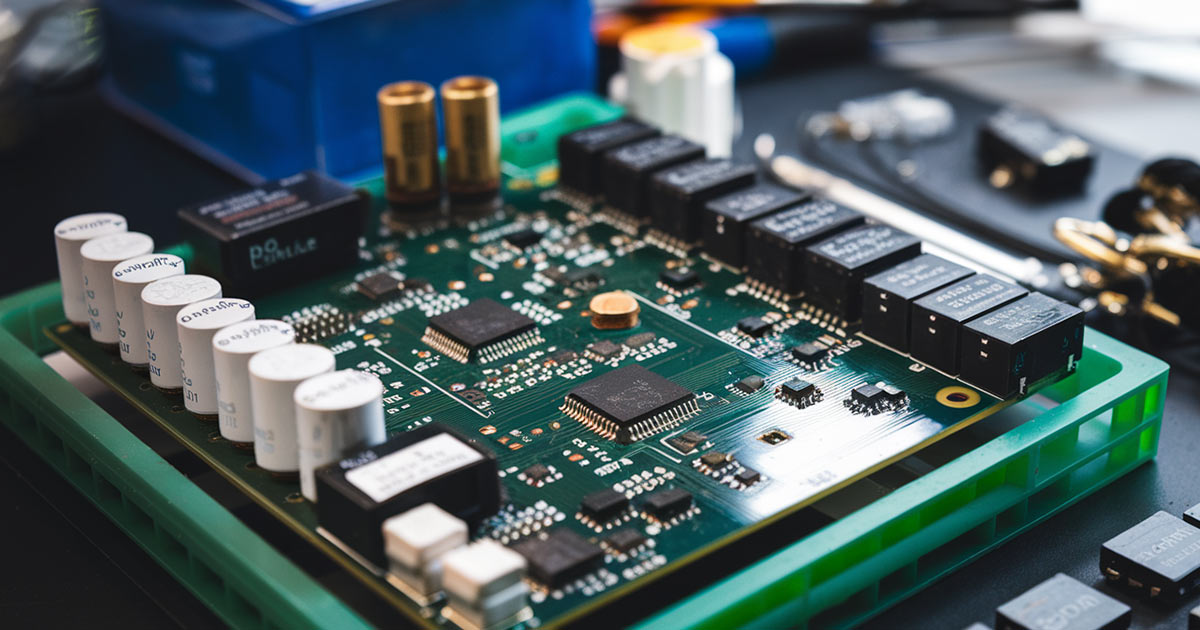
Bachelor of Science (Hons) in Electronic Science
By NCTA Team Last Updated: January 02, 2026Overview:
Electronics Science is the study and application of electronic devices, circuits, and systems. It involves understanding components like resistors, capacitors, diodes, and transistors, and designing both analog and digital circuits. The field also explores semiconductors, signal processing, and communication systems. Power electronics focuses on the conversion and control of electrical power, while microelectronics deals with small-scale integrated circuits used in devices like smartphones and computers. Additionally, electronics science plays a key role in automation and control systems for industries, robotics, and vehicles. Overall, it is essential to modern technology and innovations across various sectors.
Course Description:
Bachelor of Science in Electronics Science (Hons.) is a three-year undergraduate program designed to provide students with a strong foundation in the principles and applications of electronics and electrical engineering. The course covers a wide range of topics, including electronic components, circuit theory, semiconductors, signal processing, communication systems, power electronics, and microelectronics. Students will gain hands-on experience through laboratory work and projects, equipping them with the skills necessary to design, analyze, and troubleshoot electronic systems.
Throughout the program, students will explore both theoretical concepts and practical applications, preparing them for careers in diverse fields such as telecommunications, consumer electronics, automation, robotics, and power systems. The curriculum emphasizes innovation, problem-solving, and the integration of modern technologies to address real-world challenges. Upon completion, graduates will be well-prepared to enter the workforce or pursue higher studies in electronics or related disciplines.
Objectives:
Bachelor of Science in Electronics Science(Hons.) aims to equip students with a deep understanding of electronic components, circuit design, signal processing, and modern technologies, preparing them for careers in electronics, telecommunications, and related industries.
Why Choose Bachelor of Science in Electronics Science?
Bachelor of Science in Electronics Science is an ideal choice for those interested in understanding the core principles of electronics and technology, offering opportunities to work in dynamic fields like telecommunications, robotics, automation, and consumer electronics while fostering innovation and providing strong career prospects.
Course Curriculum:
Bachelor of Science in Electronics Science is a comprehensive three-year undergraduate program designed to provide students with in-depth knowledge and practical skills in the field of electronics. The curriculum emphasizes the foundational principles of electronics, digital and analog systems, microelectronics, signal processing, communication systems, and advanced topics such as power electronics and embedded systems. Students will also gain hands-on experience through laboratory work, projects, and industrial training to prepare them for careers in various sectors such as telecommunications, automation, consumer electronics, and renewable energy. Key subjects include:
Year I:
- Introduction to Electronics Science
- Basic Electrical Engineering
- Calculus and Linear Algebra
- Physics for Electronics
- Digital Logic Design
- Basic Programming and Computer Applications
- Engineering Drawing and Instrumentation
Year II:
- Analog Electronics
- Network Theory and Circuit Analysis
- Differential Equations
- Introduction to Semiconductor Physics
- Signals and Systems
- Electronics Materials and Components
- Communication Systems Basics
Year III:
- Digital Electronics and Microprocessors
- Electromagnetic Theory
- Analog Signal Processing
- Microcontroller Programming and Applications
- Control Systems and Feedback
- Power Electronics and Devices
- Probability and Statistics
Career Opportunites:
After completing a Bachelor of Science in Electronics Science, graduates can explore a wide range of career opportunities across diverse industries, including telecommunications, electronics manufacturing, automation, and renewable energy. Key career paths include:
- Electronics Engineer
- Telecommunications Engineer
- Embedded Systems Developer
- Power Electronics Engineer
- Control Systems Engineer
- Signal Processing Engineer
- Product Development Engineer
- Robotics Engineer
Salary Expectations:
After completing a Bachelor of Science in Electronics Science, salary expectations vary based on the job role, experience, and location. Entry-level salaries typically range from ₹3,00,000 to ₹6,00,000 per annum, while experienced professionals can earn between ₹6,00,000 to ₹15,00,000 annually, depending on the role. Key positions such as Electronics Engineer, Telecommunications Engineer, Embedded Systems Developer, and Control Systems Engineer offer competitive salaries. Specialized fields like Power Electronics, Signal Processing, and Robotics can lead to higher earnings, especially in metro cities or high-demand industries. Salaries tend to rise with experience, and opportunities in entrepreneurship or R&D can further boost income.
Course Features
| Course Code | UDC-528 |
| Duration | 3 Years |
| Category | Bachelor of Science (Hons) in Electronic Science |
| Eligibility | XII from recognized board |
| Fees | 3×25000= 75,000 |
To know more about our this course, feel free to call us at:
+91 9733600770Ready to Enroll in This Course?
Start your learning journey today and unlock your potential!
Apply Now for This Course
